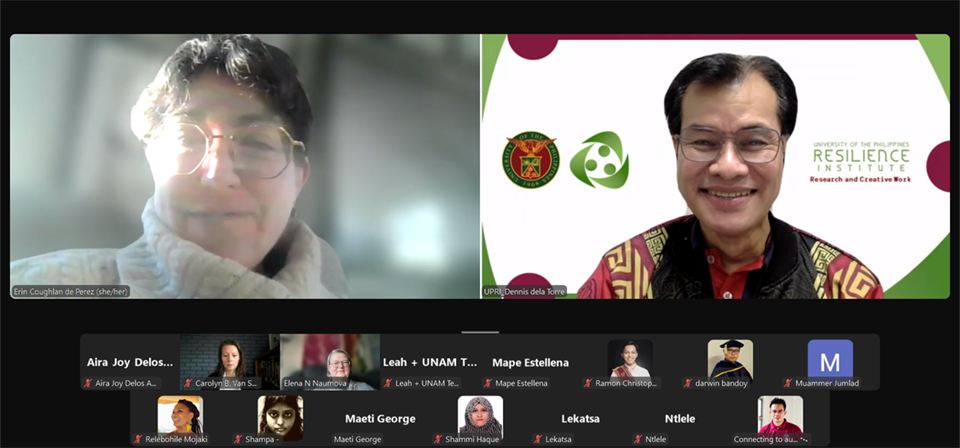The Center for Climate and health on glObal Research on Disasters (CORD) Team of the UP Resilience Institute – Research and Creative Work Division (UP RI-RCW) hosted the consortium’s “deep dive” session on November 13, 2024. The discussion focused on artificial intelligence (AI) as a platform for disease prevention and control. The program had two lightning talks by AI experts, followed by a breakout session.

The first lightning talk briefly covered the history of AI and the nexus of AI with food, health, and education. Prof. Elena Naumova from Tufts University emphasized that data is becoming society’s new oil with how valuable it is, though it should still be continuously refined for specific purposes. She also said that once the data is refined, it can be used to make informed decisions, and AI can assist in the process.
The second lightning talk was presented by Dr. Darwin Bandoy, an Assistant Professor for Epidemiology from the University of the Philippines Los Baños – College of Veterinary Medicine. He seconded what Prof. Naumova said that data can be fed into AI which provides insights to key decisionmakers. From the perspective of epidemiology, AI can be used as a data augmentation tool when there are inadequacies or inconsistencies in data, specifically for disease modeling. Dr. Bandoy will be one of the expert consultants of the UP RI CORD Team for our research on dengue.
For the breakout session, RCW Chief Science Research Specialist Dennis de la Torre provided the topics that shall be discussed among each team. The first topic is on the uses and benefits of AI on anticipatory action for climate change and health, while the second one is on its negative consequences. The UP RI Team listed the fast and precise data collection and processing of AI in its uses and benefits, as well as its capacity to be easily integrated with other modern technologies.
The team acknowledges that AI is far from perfect, and thus it has negative consequences in the job market of creative industries and healthcare professions that require human interaction. In the interest of time, the UP RI Team focused on proposing a solution for the job displacement in creative industries. The team reached a consensus on the imposition of progressive taxation to workplaces that will harbor AI, in favor of the individuals who will be displaced by the said action.
The inputs of the seven universities within the consortium are to be collated as a starting point for the production of a collaborative research paper. Consequently, this monthly meeting is looking forward to advancing a consortium-level program focusing on South-South cooperation and artificial intelligence.
